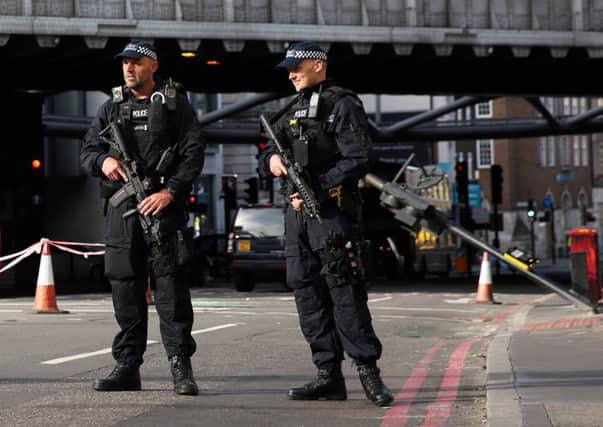YP Comment: The thankless task facing M15 - Our debt to security services


They have, frankly, a thankless task. Even though five planned atrocities have been successfully foiled since the Westminster Bridge tragedy on March 22, the narrative has shifted to the two outrages that have taken place after it emerged that Manchester suicide bomber Salman Abedi, and Khuram Shazad Butt, one of the three jihadist knifemen responsible for the deadly assault in London last Saturday, were previously known to the authorities.
And again the context is critical, even more so on the eve of a general election in which national security – and policing – has become such a polarising issue at a time when the unity of this nation has never been more important. Even now, it goes against the principles of this country to round up individuals if they have not committed a criminal offence. If there was internment, another generation of terrorists would be radicalised as a consequence.
Advertisement
Hide AdAdvertisement
Hide AdFurthermore M15 agents face an invidious task when it comes to determining precisely whom to monitor. With 3,000 known jihadists in Britain, and a further 20,000 individuals said to be posing a “residual risk”, their job is made even harder by the fact that knife-wielding maniacs are now using cars, or vans, as lethal weapons in order to spread fear and panic. It’s not humanly possible to track every journey; no amount of resourcing will eliminate the risk.
This is why Labour’s electioneering has been so disingenuous. No one is to blame for the slaughter of so many innocents, the latest victim being an Australian nurse working in London, other than the perpetrators themselves. And while Theresa May does have difficult questions about cuts to community policing in particular, Jeremy Corbyn is not qualified to lecture the nation when it comes to counter-terrorism.
After tomorrow’s election, politicians need to come together to review the adequacy of the powers, and resources, at the disposal of M15. If it can be achieved on a cross-party basis, it will send out a powerful message that it is terrorists, and Islamist extremists in particular, who are the only people who have anything to fear from the work of the security services.
Nothing personal - The politics of Diane Abbott
Diane Abbott has done neither herself, nor her party, any favours during this election. The Shadow Home Secretary had an inadequate grasp of her party’s policing plans, and their cost, before being sidelined. And, when she did return to the fray, she floundered when asked, quite reasonably, about counter-terrorism measures in London. Many Labour supporters were relieved when she pulled out of a pre-arranged debate on Radio 4’s Woman’s Hour. It’s not the first time Ms Abbott has become indisposed at a key moment – she also missed a key Commons vote on the triggering of Brexit’s Article 50.
Advertisement
Hide AdAdvertisement
Hide AdHowever, her political career does need placing in perspective. Thirty years ago, she made history by becoming the first black woman to be elected to Parliament and her presence at Westminster has helped to make the House of Commons more diverse. And while Ms Abbott’s opinions on range of issues, including terrorism, are incompatible with the views of the mainstream majority, independent-minded backbenchers are an important function of any Parliamentary democracy. The lesson here is that some are simply not cut out for the front bench or, in Diane Abbott’s case, one of the so-called great offices of state, responsible for the nation’s security, in the still unlikely event of Labour winning power tomorrow.
Simple arithmetic - Playing the numbers game
It’s a tried and tested counting method that dates back to our ancient ancestors, and now a team of researchers have concluded that using their fingers can help young children with their maths.
The new study, carried out by Sheffield Hallam University, suggests that playing games with their fingers, alongside number games such as dominos, boosts youngsters’ results when it comes to simple arithmetic.
Researchers said the findings, which involved 137 children aged six and seven, could be useful for teachers in developing children’s understanding of numbers.
This hardly seems revelatory. Any teacher or parent worth their salt will surely be well aware of this already. Do we really need researchers telling us what we already know?